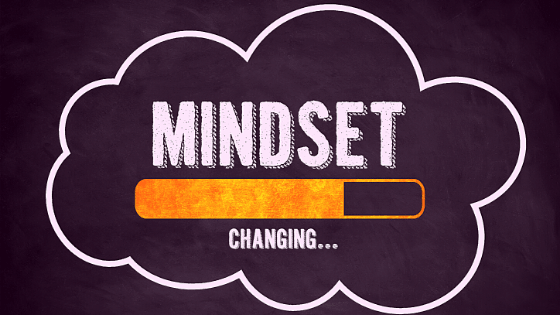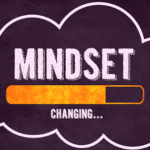Now Reading: A Complete Guide to Developing Your Emotional Intelligence
-
01
A Complete Guide to Developing Your Emotional Intelligence
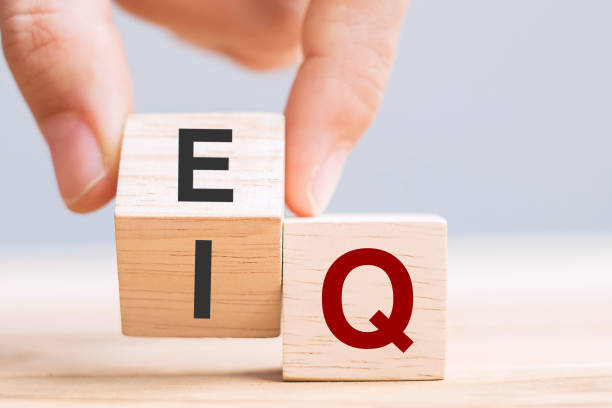
A Complete Guide to Developing Your Emotional Intelligence
Imagine if I told you there’s one skill that could boost your job performance by 58%, reduce your stress levels dramatically, and transform every relationship in your life. You’d probably want to know more, right? That skill is emotional intelligence, and here’s everything you need to know about developing it.
“Your emotional intelligence is your ability to recognize and understand emotions in yourself and others, and your ability to use this awareness to manage your behavior and relationships.” – Daniel Goleman
The Moment I Realized Everything I Knew About Success Was Wrong
Picture this: Two colleagues get promoted to management positions on the same day. Both are brilliant—top of their class, impressive technical skills, the works. Fast forward two years, and one is thriving while the other is struggling to keep their team together. What made the difference? It wasn’t their IQ or technical expertise. It was something much more subtle yet powerful: their emotional intelligence.
This scenario plays out in offices around the world every single day. We’ve been told that being smart and working hard is enough, but research tells us a different story. Emotional intelligence accounts for 58% of job performance across all industries and career levels. Let that sink in for a moment—more than half of what determines your success at work isn’t about what you know, but how well you understand and manage emotions.
The beautiful thing about emotional intelligence? Unlike your IQ, which stays pretty much the same throughout your life, you can absolutely develop and improve your EQ. It’s like a muscle that gets stronger with practice. And trust me, once you start building these skills, you’ll wonder how you ever managed without them.
What Emotional Intelligence Really Means (And Why It Matters More Than You Think)
When most people hear “emotional intelligence,” they think it’s about being touchy-feely or overly sensitive at work. That couldn’t be further from the truth. Emotional intelligence is actually about being incredibly strategic with emotions—both yours and others’. It’s about reading the room, staying cool under pressure, and knowing exactly what to say when tensions run high.
“The curious paradox is that when I accept myself just as I am, then I can change.” – Carl Rogers
Think of someone you really admire as a leader or colleague. I bet they have this ability to make everyone feel heard, they never seem to lose their cool during crises, and somehow they always know the right approach for different people. That’s emotional intelligence in action.
The research behind this is fascinating. Scientists have discovered that our emotional intelligence involves multiple areas of the brain working together. Your prefrontal cortex handles the executive decisions about emotions, while your amygdala processes the emotional content, and your anterior cingulate cortex helps you understand what others are feeling. The amazing part? These neural pathways actually strengthen when you practice emotional intelligence skills.
Here’s what really caught my attention: people with high emotional intelligence don’t just perform better at work. They have 40% lower rates of stress-related illness, recover 23% faster from difficult situations, and their teams show 20% better performance. It’s like having a secret weapon for both your career and your health.
The Day Everything Clicked: Understanding the Five Core Skills of Emotional Intelligence
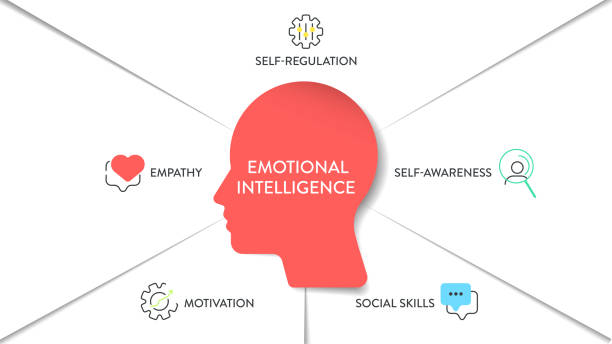
Let me share a story that completely changed how I think about emotions at work. A few years ago, I watched a colleague navigate what should have been a career-ending mistake. She’d accidentally sent confidential information to the wrong client—the kind of error that usually leads to immediate termination. But instead of panicking or making excuses, she did something remarkable.
First, she took a moment to process her own shock and fear. Then she immediately called the client to explain the situation, took full responsibility, and outlined specific steps to prevent it happening again. She kept her manager informed throughout the process and even turned it into a learning opportunity for the entire team. Not only did she keep her job, but she was promoted six months later.
That’s when I realized emotional intelligence isn’t one skill—it’s five interconnected abilities that work together like instruments in an orchestra.
Self-Awareness: Your Emotional GPS
The foundation of everything is knowing what you’re feeling and why. This might sound simple, but most of us are surprisingly disconnected from our emotional states. We’ll say we’re “fine” when we’re actually frustrated, or claim we’re “busy” when we’re really overwhelmed and anxious.
Self-awareness means catching yourself in the moment when anger starts building during a meeting, or recognizing that your energy dips every Tuesday afternoon, or noticing that you get defensive when receiving feedback from certain people. It’s like having an internal GPS that tells you exactly where you are emotionally.
I started practicing this by setting random alarms on my phone three times a day. When they went off, I’d pause and ask myself, “What am I feeling right now, and what caused it?” It felt silly at first, but within a few weeks, I started noticing patterns I’d never seen before. Turns out, I was most creative in the morning and most irritable when I was hungry. Simple insights, but they made a huge difference in how I planned my days.
Self-Regulation: The Art of Emotional Judo
Once you know what you’re feeling, the next challenge is managing those emotions effectively. This isn’t about suppressing feelings or pretending everything is fine. It’s more like emotional judo—using the energy of the emotion but redirecting it in a more productive direction.
“Between stimulus and response, there is a space. In that space is our power to choose our response. In our response lies our growth and our freedom.” – Viktor Frankl
Think about the last time someone really frustrated you at work. Your first instinct might have been to fire off a sharp email or make a sarcastic comment in the meeting. Self-regulation is that pause between the trigger and your response, where you choose how to react based on what outcome you actually want.
I learned a technique called the STOP method during a particularly stressful project. When I felt myself getting overwhelmed or angry, I would literally stop what I was doing, take a slow breath, observe what I was feeling, and then proceed with intention. It sounds almost too simple to work, but that tiny pause made all the difference between reactive responses and thoughtful ones.
Motivation: Finding Your Why When the Going Gets Tough
Here’s something interesting about highly emotionally intelligent people: they’re not necessarily more optimistic or positive than everyone else. What they have is a deep connection to their intrinsic motivation—the internal drive that keeps them going even when external rewards aren’t there.
I once worked with someone who stayed passionate about her job through three different layoffs, two difficult bosses, and a complete company restructuring. When I asked her how she did it, she said, “I never lost sight of why I’m here. I’m helping families find homes. That matters to me whether my boss is great or terrible.”
This kind of motivation isn’t about rah-rah positivity. It’s about connecting your daily work to something meaningful to you personally. Maybe it’s learning new skills, helping others succeed, or building something that lasts. When you tap into that deeper why, you become remarkably resilient to the ups and downs of workplace life.
Empathy: The Secret to Unlocking Every Relationship
Empathy might be the most misunderstood aspect of emotional intelligence. It’s not about being a people-pleaser or taking on everyone else’s emotions. True empathy is more like being a skilled translator—you can understand what someone else is experiencing without losing yourself in their experience.
The best managers I know have this ability to step into their team members’ shoes. They can sense when someone is struggling with confidence, when another person feels undervalued, or when tension is building between team members. More importantly, they know how to respond to these emotional undercurrents in ways that actually help.
One manager I deeply respected had a gift for reading the room. She could tell when someone was having a bad day and needed space, versus when they were stuck and needed encouragement. She didn’t make a big deal about it—just adjusted her approach based on what she observed. Her team was incredibly loyal because everyone felt truly seen and understood.
Social Skills: Bringing It All Together
Social skills are where all the other emotional intelligence abilities come together. It’s using your self-awareness, self-regulation, motivation, and empathy to navigate relationships and influence outcomes in positive ways.
This isn’t about being the most charming person in the room or having perfect social techniques. It’s about authentic connection and communication that actually gets things done. The most socially skilled people I know are incredibly good at adapting their communication style to what the situation and person need.
For example, they know when to be direct and when to be diplomatic. They can deliver difficult feedback in a way that motivates rather than deflates. They’re skilled at finding common ground even with difficult people, and they somehow make everyone feel like their perspective matters.
The Real-World Laboratory: How to Build These Skills
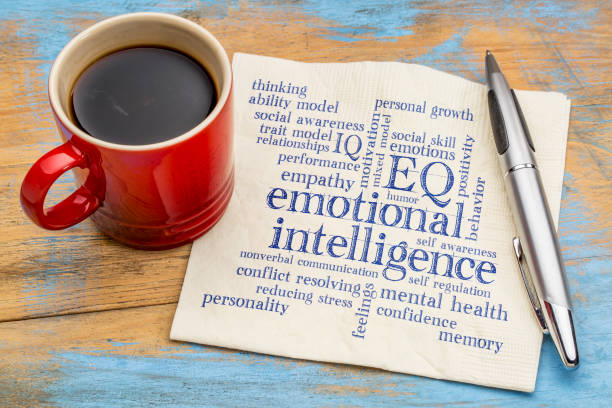
Here’s the thing about emotional intelligence—you can’t develop it by reading about it or taking a course. It’s like learning to ride a bike or play an instrument. You have to practice it in real situations with real stakes. The good news is that every day gives you dozens of opportunities to strengthen these skills.
Starting with Self-Awareness: The Foundation Phase
Building self-awareness is like developing a new sense. At first, you have to be very intentional about it, but gradually it becomes more automatic. I started my own journey by paying attention to my physical sensations throughout the day. Tight shoulders usually meant I was stressed. A clenched jaw meant I was frustrated. Feeling energized and focused meant I was in my element.
From there, I began connecting these physical cues to emotional patterns. I noticed that I felt most confident and creative in the morning, most social and collaborative in the afternoon, and most reflective in the evening. I also discovered some surprising triggers—certain types of meetings drained me, while problem-solving sessions energized me.
The breakthrough came when I started tracking these patterns over time. I realized that most of my “bad days” followed a predictable pattern of poor sleep, skipping breakfast, and back-to-back meetings with no breaks. Once I saw the pattern, I could start making small adjustments that had big impacts.
Practicing Self-Regulation: The Pause That Changes Everything
Self-regulation is really about buying yourself time between stimulus and response. In that pause, you can choose your reaction instead of being hijacked by your immediate emotional response. It’s such a simple concept, but it’s incredibly powerful in practice.
I remember a particularly challenging situation where a client was furious about a project delay. My first instinct was to get defensive and explain all the reasons why the delay wasn’t our fault. Instead, I took a breath and asked myself what outcome I actually wanted from this conversation. I wanted the client to feel heard, to maintain our relationship, and to find a path forward.
So instead of explaining or defending, I started with, “I can hear how frustrated you are about this delay. You’re absolutely right to expect better from us. Let me understand exactly how this has impacted you, and then let’s figure out how to make this right.” The entire tone of the conversation shifted. We ended up not only saving the relationship but getting additional work from them.
Building Empathy: The Art of Genuine Curiosity
Empathy develops naturally when you become genuinely curious about other people’s experiences. Instead of waiting for your turn to talk or thinking about your response, you focus entirely on understanding what the other person is going through.
I started practicing this by asking better questions. Instead of “How was your weekend?” I might ask “What was the highlight of your weekend?” Instead of “Any questions?” after presenting an idea, I’d ask “What’s your initial reaction to this approach?” Small changes, but they led to much richer conversations and deeper understanding.
The real breakthrough came when I started noticing the gap between what people said and what they seemed to be feeling. Someone might say they’re “excited about the new project” but their tone and body language suggest they’re actually anxious about it. Learning to gently explore that gap with curiosity rather than judgment opened up entirely new levels of communication.
The Transformation Timeline: What to Expect
One of the most common questions I get is, “How long does it take to see results?” The honest answer is that it depends on where you’re starting from and how consistently you practice. But here’s what I’ve observed in myself and others who’ve committed to developing emotional intelligence.
The First Month: Awareness Awakening
In the first few weeks, you’ll mainly notice things you never saw before. You might realize you’ve been stressed for months without acknowledging it, or that you have certain triggers that set you off predictably. This phase can actually be a bit uncomfortable because you’re suddenly aware of patterns you’d been unconsciously following.
Don’t worry—this is normal and healthy. It’s like turning on the lights in a room you’ve been navigating in the dark. Everything looks different at first, but soon you’ll be able to move around much more effectively.
Months Two Through Six: Skill Building
This is where the real work happens. You’ll start experimenting with different approaches to managing your emotions and reading others more accurately. You’ll have some wins and some setbacks. The key is to treat everything as learning rather than success or failure.
During this phase, you might notice that you’re having fewer reactive moments, that difficult conversations go more smoothly, or that people seem more comfortable opening up to you. These improvements often happen gradually, so keep track of them because they’re easy to miss.
Six Months and Beyond: Integration and Mastery
After about six months of consistent practice, emotional intelligence starts to feel more natural. You’ll find yourself automatically pausing before reacting, naturally reading the emotional climate of a room, or intuitively knowing how to approach someone who’s having a tough day.
The beautiful thing about this stage is that emotional intelligence becomes self-reinforcing. As your relationships improve and your stress decreases, you have more capacity to be emotionally intelligent, which creates a positive upward spiral.
When Things Get Complicated: Advanced Applications
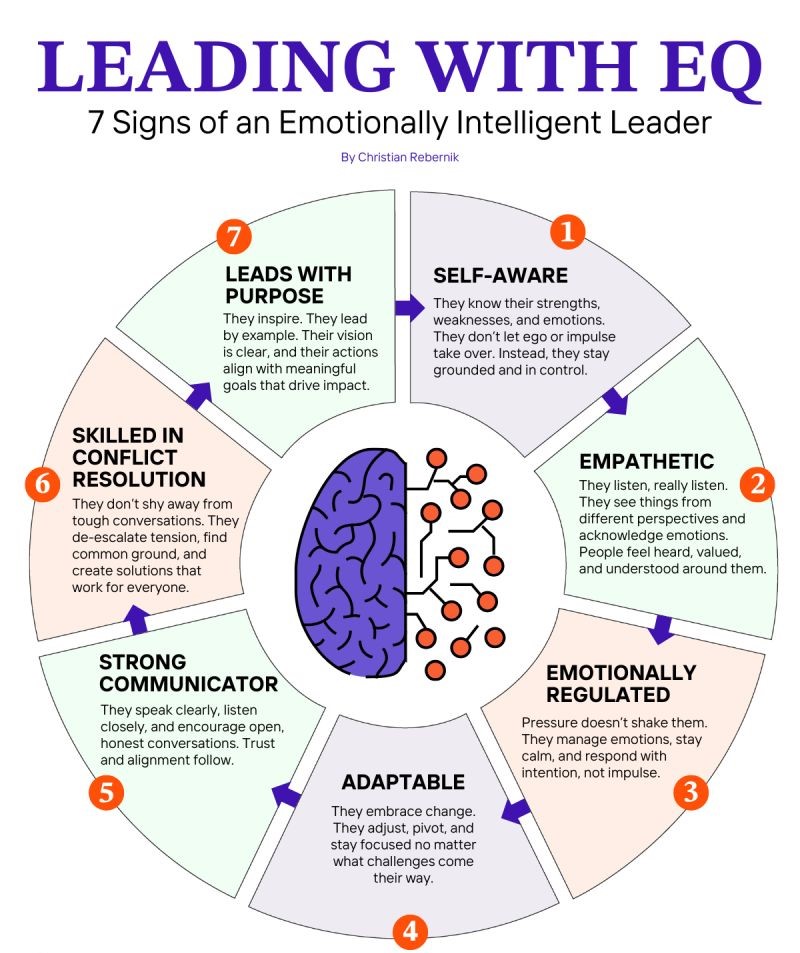
As you develop your emotional intelligence, you’ll encounter situations that require more nuanced skills. Let me share some scenarios I’ve navigated and what I learned from them.
Dealing with Emotionally Difficult People
We all have that colleague or client who seems to create drama wherever they go. Early in my career, I would either avoid these people or get pulled into their emotional chaos. Neither approach worked very well.
What I learned is that emotionally difficult people are often dealing with their own unmet needs or unresolved fears. This doesn’t excuse problematic behavior, but understanding it helps you respond more strategically. The key is maintaining your own emotional boundaries while addressing the underlying issue when possible.
For example, I once worked with someone who was consistently critical and negative in meetings. My first instinct was to argue with their criticism or avoid them altogether. But when I started observing more carefully, I realized they were actually quite insecure about their expertise being valued. Once I began asking for their input on areas where they truly were knowledgeable, their entire demeanor changed.
“The greatest revolution of our generation is the discovery that human beings, by changing the inner attitudes of their minds, can change the outer aspects of their lives.” – William James
Leading Through Emotional Intelligence
If you’re in a leadership role, emotional intelligence becomes even more crucial because your emotional state affects everyone around you. Teams are incredibly sensitive to their leader’s emotional climate. If you’re stressed and reactive, that energy spreads throughout the team. If you’re calm and confident, that has a positive ripple effect too.
The most emotionally intelligent leaders I know are masters at managing their own emotional state first, then creating psychological safety for their team members. They’re not afraid of emotions—they see them as valuable data about what’s happening in the organization.
One leader I particularly admired had a practice of starting every team meeting with a quick emotional check-in. Not a long therapy session, just a brief moment for people to share how they were feeling about current projects or challenges. It sounds like it would take too much time, but it actually made meetings more efficient because people could address emotional undercurrents that would otherwise derail the discussion.
Navigating Organizational Politics
Every workplace has politics—it’s just human nature when people work together toward common goals. Emotional intelligence gives you a significant advantage in navigating these dynamics because you can read the unspoken agendas and emotional alliances that drive many workplace decisions.
This doesn’t mean being manipulative or playing games. It means understanding that behind every “business decision” are human beings with emotions, fears, ambitions, and relationships. When you can see the human dynamics, you can communicate and collaborate more effectively.
I learned this lesson during a major reorganization where everyone was worried about job security. The official communication focused on efficiency and market conditions, but the real issue was fear. People were making decisions based on self-protection rather than what was best for the organization. By acknowledging these fears directly and addressing them with empathy, we were able to have much more productive conversations about the changes.
The Ripple Effect: How EQ Transforms Everything

What surprised me most about developing emotional intelligence was how it affected areas of my life I never expected. Better emotional skills at work made me a better parent, a more supportive friend, and even improved my physical health because I was managing stress more effectively.
Career Acceleration
The career benefits of emotional intelligence compound over time. When your relationships improve, people naturally want to collaborate with you more often. Managing conflict and stress more effectively opens doors to challenging assignments that others might avoid. Meanwhile, your growing empathy and social skills create a magnetic effect—leadership opportunities seem to find you rather than the other way around.
But here’s what’s really interesting: people with high emotional intelligence often find that career opportunities come to them rather than having to chase them. When you’re known as someone who can handle difficult situations, work well with diverse personalities, and stay calm under pressure, you become incredibly valuable to any organization.
Personal Relationship Enhancement
The skills you develop for workplace emotional intelligence translate beautifully to personal relationships. That same ability to pause before reacting that helps you in meetings also prevents arguments at home. The empathy you use to understand difficult clients also helps you connect more deeply with friends and family.
I’ve noticed that as my emotional intelligence improved, my personal relationships became richer and more satisfying. I was better at having difficult conversations, more skilled at supporting others during tough times, and much more aware of my own emotional needs and boundaries.
Physical and Mental Health Benefits
This was the most unexpected benefit. As I became better at managing stress and emotional reactions, my physical health improved dramatically. I slept better, had more energy, and rarely got the stress-related headaches that used to plague me during busy periods.
The mental health benefits were even more significant. When you understand your emotions and have skills to manage them effectively, anxiety and depression become much more manageable. Not eliminated necessarily, but you have tools to work with these feelings rather than being overwhelmed by them.
Building Your Personal Emotional Intelligence Development Plan
Every person’s emotional intelligence journey is unique because we all start with different strengths, challenges, and life circumstances. But there are some universal principles that can guide your development regardless of where you’re beginning.
Honest Self-Assessment: Where Are You Now?
Before you can improve something, you need to know your starting point. This requires brutal honesty about your current emotional intelligence strengths and blind spots. Most of us are not great at assessing ourselves accurately, so getting input from others is crucial.
Think about the feedback you’ve received over the years. Are there themes? Maybe people have mentioned that you’re great in a crisis but sometimes come across as impatient. Or perhaps you’re known for being supportive but sometimes avoid difficult conversations. These patterns give you clues about where to focus your development efforts.
I recommend asking three to five people you trust for specific feedback about your emotional intelligence. Not vague questions like “How am I doing?” but specific ones like “In what situations do you see me handling emotions particularly well? Where do you think I could improve? How do I come across when I’m stressed?”
Choosing Your Focus Areas
The temptation is to try to improve everything at once, but that rarely works. Instead, pick one or two areas that will have the biggest impact on your current goals and challenges. If you’re struggling with workplace stress, focus on self-awareness and self-regulation. If you’re moving into a leadership role, empathy and social skills might be your priorities.
Consider both your natural strengths and your growth edges. Sometimes it’s more effective to build on existing strengths rather than trying to fix weaknesses. If you’re naturally empathetic but struggle with boundaries, you might focus on using that empathy more strategically rather than trying to become less sensitive.
Creating Practice Opportunities
Emotional intelligence develops through practice, not theory. Look for low-stakes situations where you can experiment with new approaches. Maybe it’s the weekly team meeting where you can practice reading the room, or regular one-on-ones where you can work on empathetic listening.
The key is to be intentional about your practice. Before important conversations or meetings, set a specific emotional intelligence goal. It might be staying calm if the discussion gets heated, or making sure everyone feels heard, or practicing clearer communication about your own needs.
After these situations, reflect on what happened. What worked? What would you do differently? How did others respond to your approach? This reflection turns everyday interactions into learning laboratories.
Overcoming Common Obstacles
Every person I know who has worked on developing emotional intelligence has hit some predictable roadblocks. Knowing what to expect can help you navigate these challenges more effectively.
“I’m Just Not an Emotional Person”
This is probably the most common objection I hear, especially from people in technical fields. The truth is, everyone has emotions—some people are just less aware of them or have learned to suppress them more effectively.
If this resonates with you, start with the physical sensations rather than trying to name emotions. Notice tension in your shoulders, changes in your breathing, or energy levels throughout the day. These physical cues are often easier to identify than complex emotional states, and they’ll gradually help you become more aware of your emotional patterns.
The Overwhelm of Other People’s Emotions
As you become more empathetic and emotionally aware, you might find yourself feeling overwhelmed by other people’s emotions. This is especially common for people who are naturally sensitive or work in helping professions.
The solution isn’t to become less empathetic, but to develop better emotional boundaries. You can understand and support others without taking on their emotions as your own. Think of it like being a lifeguard—you can help someone who’s drowning without jumping in and drowning yourself.
Dealing with Skeptical Colleagues
Not everyone appreciates emotional intelligence, especially in workplace cultures that pride themselves on being “tough” or purely rational. You might encounter eye-rolling when you suggest considering the emotional impact of decisions, or resistance when you try to address underlying relationship issues.
The best approach is to focus on results rather than trying to convince people about emotional intelligence theory. Demonstrate through your actions that emotionally intelligent approaches lead to better outcomes. When your team has higher morale, better collaboration, and less conflict, the skeptics often become converts.
The Long Game: Why This Investment Pays Off
Developing emotional intelligence is not a quick fix or a life hack. It’s more like physical fitness—it requires consistent effort over time, and the benefits compound gradually. But the payoff is enormous, both professionally and personally.
In our increasingly connected and collaborative world, technical skills are becoming commoditized while human skills become more valuable. The ability to understand emotions, build relationships, navigate conflict, and inspire others can’t be automated or outsourced. These are the skills that will determine success in the future economy.
More importantly, emotional intelligence makes life more satisfying. When you understand yourself better, manage stress effectively, connect deeply with others, and navigate challenges with resilience, every aspect of your life improves. You become not just more successful, but more fulfilled.
Your Next Steps: Starting Today
The career benefits of emotional intelligence compound over time. When your relationships improve, people naturally want to collaborate with you more often. Managing conflict and stress more effectively opens doors to challenging assignments that others might avoid. Meanwhile, your growing empathy and social skills create a magnetic effect—leadership opportunities seem to find you rather than the other way around.
What’s fascinating is how this creates an upward spiral. People with high emotional intelligence don’t chase opportunities—they attract them. When you’re known as someone who stays calm under pressure, handles difficult personalities gracefully, and brings out the best in others, you become indispensable to any organization.
I’ve watched this play out countless times. The technically brilliant person gets passed over for promotion while their emotionally intelligent colleague advances. Why? Because as you move up in any organization, success becomes less about individual expertise and more about your ability to work through others, navigate complex relationships, and inspire teams toward common goals.
The most successful people I know aren’t necessarily the smartest in the traditional sense. They’re the ones who can read a room, adapt their communication style to different personalities, and create psychological safety where innovation thrives. These skills become your competitive advantage in a world where technical knowledge becomes quickly outdated, but the ability to connect with and influence others never goes out of style.
Your emotional intelligence becomes your career insurance policy and your promotion engine rolled into one.






